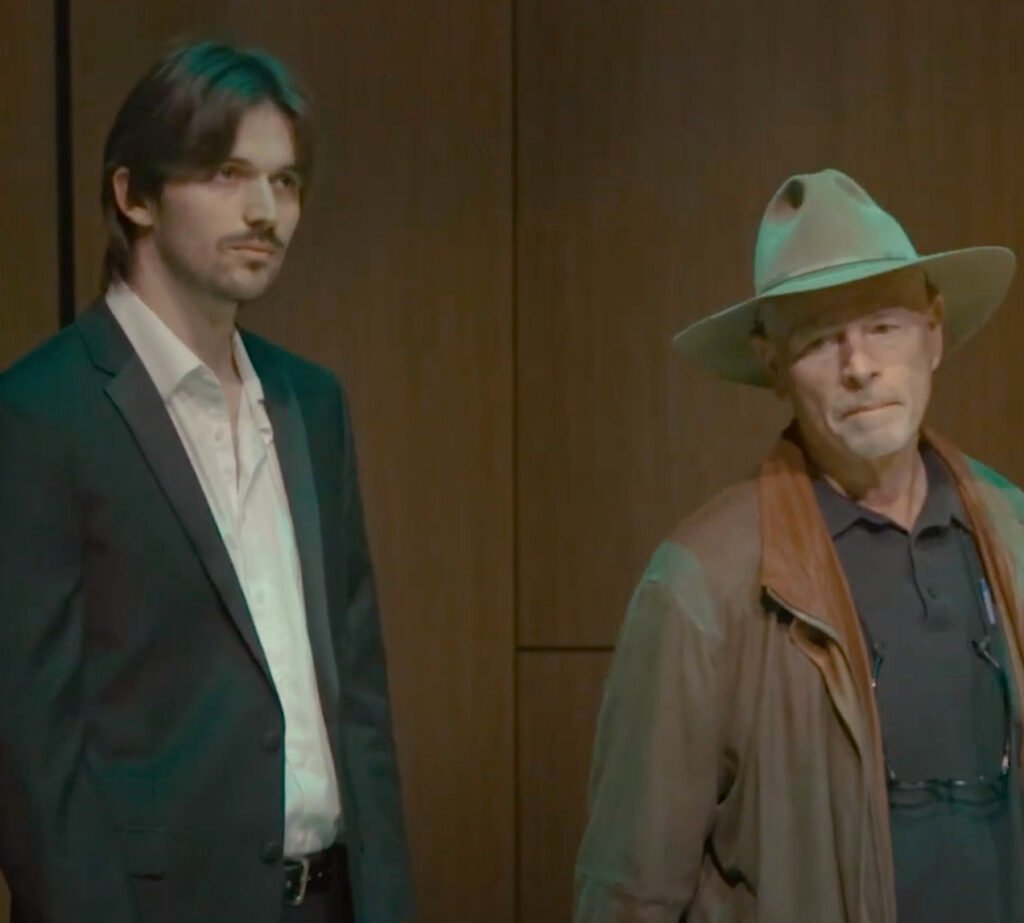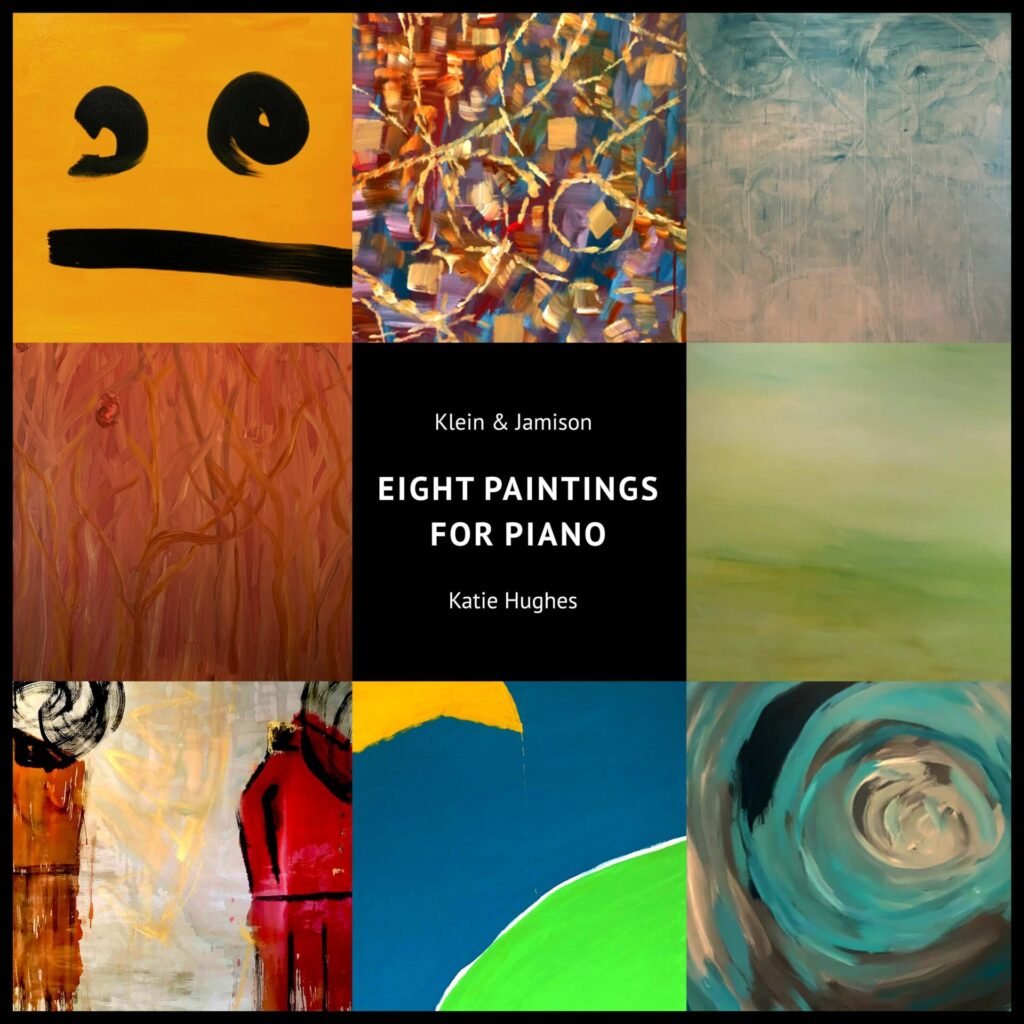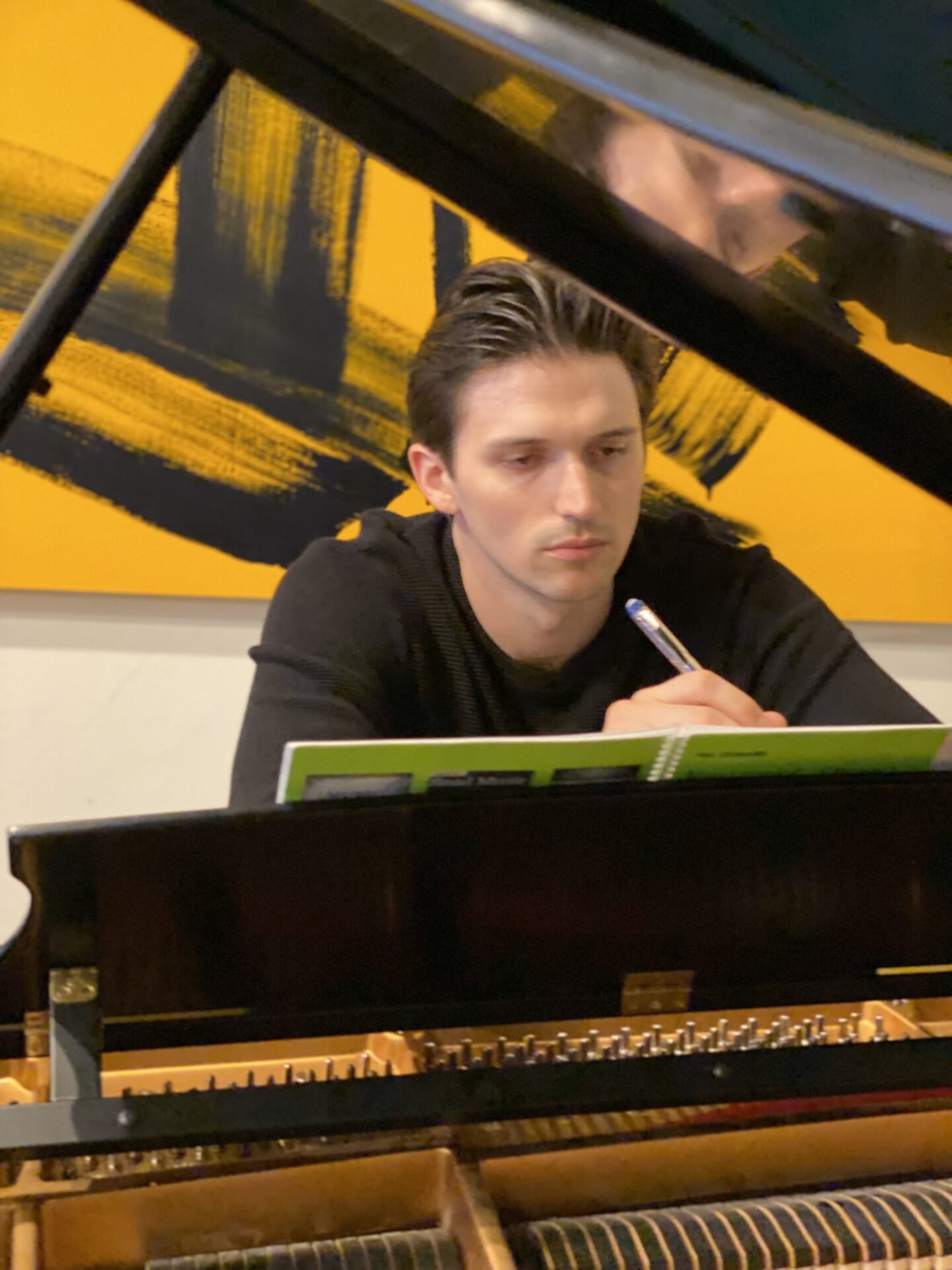Eight piano compositions are included in Eight Paintings for Piano, which was co-written by Jim Klein and features eight paintings. Each one conveys a distinct feeling or narrative. Check out the latest album and exclusive interview below:

1. Can you tell us a bit about where you come from and how it all got started?
Jamison: I grew up in Arizona. One of my friends played piano for Jim Klein while Klein was exploring different avenues of creating Classical music at the J Klein Art Factory in Scottsdale. My friend, thinking of me as his composer friend, introduced me to Klein. There’s a funny story about my and Klein’s first collaboration, but I’ll save that for another time. For now, let’s just say that we really started to jell during our third collaboration.
2. Who were your first and strongest musical influences and why the name ‘KLEIN & JAMISON’?
Jamison: My first musical influences were probably the phenomena of sound itself. As a child, Grandma’s piano was miraculous, the older kids’ violins were objects of envy and fascination; I even remember, although unaware of what exactly I was doing, coordinating with buddies such that our yelling was pitched a half step apart. Dissonance has always captivated me.
Klein & Jamison simply denotes the two writers involved.
3. What do you feel are the key elements in your music that should resonate with listeners, and how would you personally describe your sound?
Jamison: I’ll start by describing our sound. We write Classical music. As such, there is somewhat of an expectation for sophistication. That said, our music (with approachable melodies and harmonic idioms) reaches more than halfway to everyday listeners. I trust that audiences are reasonably good at gauging authenticity, at least in the long run.
4. For most artists, originality is first preceded by a phase of learning and, often, emulating others. What was this like for you? How would you describe your own development as an artist and music maker, and the transition towards your own style, which is known as CLASSICAL?
Jamison: I think that it is important to learn from and emulate others on an ongoing basis, especially those who have organically piqued your curiosity and earned your interest (as opposed to, say, those that are assigned based on someone else’s interests). While individuality is a blessing of the arts, I think the focus on it has been overzealous–increasingly so since the time of Beethoven. Implicit in your question is the presumption that one necessarily develops into a trailblazer as they advance as an artist. The cult of originality has given contemporary Classical music a notorious reputation of shock and gimmickry; a typical audience is conditioned to be way more interested in attending performances of tried-and-true composers of centuries past.

5. Do you feel that your music is giving you back just as much fulfillment as the amount of work you are putting into it or are you expecting something more, or different in the future?
Jamison: We do what we can to expect that our music will be around in the future. I would not be surprised if music is, psychologically speaking, one of the most fulfilling pursuits of life. Reading, writing, listening, studying, and performing are all indescribably enriching.
6. Could you describe your creative processes? How do usually start, and go about shaping ideas into a completed song? Do you usually start with a tune, a beat, or a narrative in your head? And do you collaborate with others in this process?
Jamison:
The process is always different. With regard to the Klein & Jamison collaborative aspect it has lately been going something like this: Klein sends over melodies, I review and catalog them, Klein comes up with a concept, I incorporate select Klein melodies that fit the project.
7. What would you consider a successful, proud or significant point in your life or music career so far?
Jamison:
That’s a big question. I suppose, to me, significance entails the continual cultivation of intellect and character, inasmuch as these broad terms can be categorized and/or understood. It is difficult to answer this in terms of a single point.
8. With social media having a heavy impact on our lives and the music business in general, how do you handle criticism, haters, and/or naysayers in general? Is it something you pay attention to, or simply ignore?
Jamison: I seem to recall reading somewhere that when people criticized Shostakovich’s music he would say something to the effect of, “that’s a great point, I will take that into consideration on my next piece.” I like that approach better than, say, Bruckner’s approach of rewriting the same works over and over.
9. Creative work in a studio or home environment, or interaction with a live audience? Which of these two options excites you most, and why?
Jamison: As a composer, I probably derive more excitement from the former more than a typical performer would. I can get a wonderful thrill playing music for an audience too, but I evidently subordinate that to creative work. Composition is my top focus. I much prefer solitude when I write. A symbiosis occurs when I test drive my compositions with an audience.
10. Do you think is it important for fans of your music to understand the real story and message driving each of your songs, or do you think everyone should be free to interpret your songs in their own personal way?
Jamison: I don’t think either is especially imperative because I don’t necessarily find the two to be mutually exclusive. A major function of composition is to create music such that something special (an aesthetic or emotional intention) is transmitted from composer to audience, AND the audience has no choice but to respond to any given composer/composition in their own way. Music communicates something peripheral to any “real story,” otherwise it would be a story, and not expressed in a medium of coordinated pitch and rhythm. One way of looking at this is, if you want to communicate something very literal, you’d be better off communicating it with words. Words and music can be combined, of course, but that’s a whole ‘nother story.
KEEP IN TOUCH:
FACEBOOK | INSTAGRAM | TWITTER | SPOTIFY | WEBSITE | YOUTUBE

